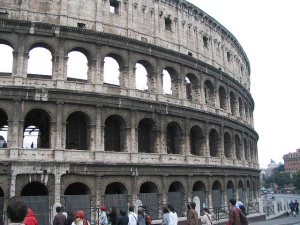Lawmaker proposes corporate welfare for NFL club
By Joseph Perkins
Elaine Alquist is not a member of the San Francisco 49ers’ Gold Rush gals, but the Santa Clara state senator is the NFL club’s biggest cheerleader.
With but a month left in the legislative session, Sen. Alquist, D-Santa Clara, has artfully crafted a measure that would gift the York family, which own the Niners, up to $30 million toward construction of the tricked-out new stadium they’ve always wanted.
So desperate is Alquist to please the Yorks, to presumably secure her place in the owner’s box during Niners home games, that she actually gutted a bill on teacher credentialing and amended it to free up local redevelopment dollars for the building project.
Alquist felt compelled to go to such extraordinary lengths after the Santa Clara County Board of Supervisors denied a request by the city of Santa Clara that the board turn over the $30 million or for the stadium’s construction.
A copy of Alquist’s bill, obtained by the Los Angeles Times, states that the board’s denial created “unique circumstances” — namely, that the York family wouldn’t get the taxpayer subsidy they were expecting to build their new stadium — and, therefore, “this special statute is necessary.”
If the Legislature passes Alquist’s special statute, it will hardly be the first time state lawmakers have bent over backwards to facilitate construction of a new stadium for a privately-owned sports franchise.
Just last year, in fact, the Legislature approved a special statute for a proposed stadium in downtown Los Angeles that granted a waiver from certain environmental laws. And in 2009, state lawmakers approved a special bill for a proposed stadium in the city ofIndustrythat waived environmental mandates.
The argument for the custom legislation clearing the way for the stadium projects in downtown L.A., City of Industry and, now, Santa Clara is that they will foment economic growth and stimulate job creation in the respective cities.
UBS study
But a growing body of evidence suggests that argument is a canard. Indeed, a recent report by UBS finds that “new stadiums and arenas have no measurable effect on the level of real income or employment in the metropolitan areas in which they are located.”
Sure, a new stadium in Santa Clara (or downtown L.A. or City of Industry) will attract sports fans. But, says the UBS report, “Individuals generally maintain a consistent level of entertainment spending, so money spent on sporting events typically comes at the expense of cash spent in restaurants, on travel, and at movie theaters.”
Defenders of publicly-funded sports facilities suggest that it is impossible to retain or attract a professional sports franchise without taxpayer handouts. But that is simply is untrue.
The San Francisco Giants built their $357 million ballpark in 2000 with no public funds. And the owner of the Golden State Warriors is moving the NBA franchise to San Francisco and building a new arena out of his own pocket.
That’s not to say that Alquist and her colleagues in Sacramento should do absolutely nothing to assist owners of professional sports franchises build new stadiums or arenas.
It’s perfectly acceptable for the state to relax onerous environmental and labor regulations that substantially increase construction costs for sports facilities. But it’s fiscally irresponsible to provide taxpayer subsidies to pay for those privately-owned facilities.
Related Articles
Study questions whether fracking causes earthquakes
essay writing online A new 2013 study conducted by the University of Durham in the United Kingdom dispels the
Do tiered water rates save water?
It must sound crazy in the middle of an epic California drought to say empirical studies show raising water
California Solar Initiative: overhyped and underperforming
Now that the $2.167 billion California Solar Initiative is winding down, electricity ratepayers might ask: What was it and what





